#忘羡 – 无羁
Text
okay but like why do three versions of the same song described in one novel make different emotions overflow within me whenever i hear them?
#mo dao zu shi#mdzs#grandmaster of demonic cultivation#chen qing ling#cql#the untamed#wangxian#wuji#xianyun#忘羡#无羁#羡元#🐈⬛boba.rants
11 notes
·
View notes
Text
(Wrote this some months ago)
I’ve always known that The Untamed is not a direct translation of 陈情令’s title… BUT IT SUDDENLY DAWNED ON ME THREE (?) YEARS LATER THAT THE DRAMA’S OPENING THEME SONG IS 无羁 (Wu2 Ji1)
羁 refers to a horse’s bridle.
Meaning The Untamed is actually a translation of the main theme’s title 无羁 instead of the drama’s.
By the way, it’s also the same Wu (无) in Wei Wuxian (魏无羡)’s name. And while it doesn’t use the same hanzi character and meaning as Lan Wangji (蓝忘机)’s Ji (机), it’s the same pronunciation.
Meanwhile, the drama’s title 陈情令 (Chen2qing2 Ling4)…
陈情 means… “give a full account (of something)”, in this case likely a confession of one’s feelings/actions (be it hostile or romantic or platonic or something else). It’s also the name of Wei Wuxian’s dizi/flute.)
令 in this context is likely 小令 (xiao3ling4) as in “short tonal poem” (a form of Chinese poetry) or one could simplify it to “verse”. (Fitting since Lan Wangji and Wei Wuxian both play instruments which likes alludes to 高山流水, a story of a qin player and a listener who can see in his mind the qin music’s intended imagery. The term 知音 / zhiyin can mean “heart’s accompaniment”, literally being “understand the sound”. By the way, the imagery of an unseen Instrumentalist in the distance is very common in traditional Chinese poetry so the instrument-playing Lan Wangji and Wei Wuxian’s make quite the poetic imagery.) Alternatively 令 could also mean ”order”/”decree”.
In English prose—
From a romantic angle, 陈情令… can mean “Confession Verse”, “Short Confession Poem”, etc. Or, from a non-romantic angle, “Monologue” seems to work too (even if it’s a more loose translation)
(WHAT DO YOU MEAN THE UNTAMED’S VERY LITERARY CHINESE TITLE CAN BE INTERPRETED AS “LOVE LETTER”)
But if 令 is taken to mean “order” or “decree” along with 陈情’s ambiguous meaning, then 陈情令 could also be roughly interpreted as ”Guilty Confession Order”.
Bringing in 令’s “verse” imagery together with the “order” imagery, and the various meanings of 陈情…
陈情令 as “Open Letter Order” in prose?
#dusk translation#the untamed#chenqing ling#chen qing ling#陈情令#wei wuxian#魏无羡#lan wangji#蓝忘机#无羁#Chinese#English translation#fan translation#c drama#translation
5 notes
·
View notes
Text
youtube
I made a flute and guqin cover of Wu Ji / WangXian, The Untamed version.
Art by the amazing @xianduguaitan <3
#mdzs#mo dao zu shi#wangxian#the untamed#wu ji#wuji#flute#guqin#duet#cover#无羁#陈情令#忘羡#魔道祖师#wei wuxian#lan wangji#Youtube
1 note
·
View note
Text
The meaning of “The Untamed”
someone asked me to elaborate and who am i to say no? (i asked for it in the tags)
The Untamed isn’t a translation of 陈情令 (chén qíng líng) so when people discuss the title they typically toss out or brush off the english title entirely.
but that’s because it’s not a translation of 陈情令 it’s a translation of 无羁 (wú jī) the theme song of the series.
yippe explaination set up
i’d also like to make this post new fan and/or cql only fan friendly so i’m going to go in depth about the significance of 无羁 before explaining how it connects to the english title.
first the chinese characters for wwx and lwjs names
Wei Wuxian — 魏无羡
Lan Wangji — 蓝忘机
in the novels the song Wei Wuxian plays on the flute, that Lan Wangji played for him in the cave with the Xuanwu of Slaughter is expressly titled 忘羡 (wàng xiàn). the ship name we all know and love consisting of the first character of Wangji and last character of Wuxian.
so the track in cql is titled 无羁 the first character of Wuxian and the last sound of Wangji.
now the translation explanation
无羁 directly translates to unbridled, unfettered, or untamed
so The Untamed as the english version of the title is literally a mixed up version of their ship name in english! when you say “i’m watching The Untamed” in a way you’re kind of saying “i’m watching Wangxian”.
how does this relate to the name 陈情令?how did this become the english title?
i’d like to refer you to this post as it explains in depth better than i can the meaning of 陈情令.
directly translated 陈情令 means “a song from chén qíng”, being the name of Wei Wuxian’s flute. however, 陈情 itself has two translations. first being to reminisce past relationship. (referring from the linked post please check it out)
Wuji is a song both played literally on the chen qing flute, but is also a song reminiscent of a past relationship. ofc it’s of a present relationship now but throughout the series, you get what i mean.
so Wuji, or The Untamed, makes perfect sense to be the english title for the show.
ALSO!! felt i should include this
《 魔道祖师:无羁 》 or “Mo Dao Zu Shi : Wu Ji” is the official name for the books printed in mainland china afaik.
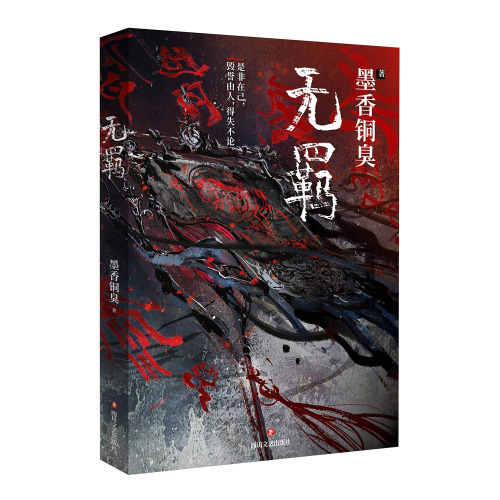

i got like maybe 2 hours of sleep last night and i’m running on 3 cups of coffee so far so this is what happens
if there’s any questions feel free to ask <3
post for @baby4012
#mdzs#mo dao zu shi#the untamed#cql#wei wuxian#lan wangji#wangxian#wuji!!#danmei#does this count as a meta post what is meta posting idk#rambling ofc
158 notes
·
View notes
Text
antithetical couplets
chinese couplets for tgcf/mdzs/svsss/2ha in that order (elaboration below):
仙花垂怜,川城倾谢
陈情一曲,忘羡无羁
秋霜垣断,洛水河绵
玉衡微晚墨夜燃,棠雨渐宁苍生渡。
elaboration
tgcf : huacheng x xielian
仙花垂怜,川城倾谢
xiānhuā chuílián, chuān chéng qīng xiè
Heavenly flowers empathise and shed mercy; entire rivers and cities bow down in gratitude.
mdzs : lwj x wwx
陈情一曲,忘羡无羁
chénqíng yī qū, wàngxiàn wú jī
I lay out my resentments and play a piece on Chenqing; I forget my covetings of the world and go out into the wild, untamed.
svsss : lbh x sqq
秋霜垣断,洛水河绵
qiūshuāng yuán duàn, luòshuǐ hé mián
In the autumn frost the walls fall down; in the Luo River the waters flow, unabating.
2ha : mo ran x cwn
玉衡微晚墨夜燃,棠雨渐宁苍生渡。
yùhéng wēi wǎn mòyè rán, tángyǔ jiàn níng cāngshēng dù
The Yuheng star, Alioth, of the Big Dipper dips slightly and burns in the ink-like night; the Haitang flowers rain, gradually calms, and ferries all mortals across the raging seas.
antithetical couplets, or alternatively, the lack thereof. these are known as 对仗 (duì zhàng) in chinese (similar to 对联 duì lián、对偶 duì ǒu you may have heard of), where the number of characters in each phrase are the same, while the position of the noun in the first part of the couplet equates the position of the noun in the second, the verb the verb, the adjective the adjective etc. there's also this thing called 平仄 (píng zè) in which the tonality of the first and second parts of the couplet has to be opposite (terrible explanation sorry for butchering it).
they aren't strictly 对仗 here. words like 绵 is more an adjective than a verb, while 断 is a verb. the 平仄 for the last one (2ha) should work alright, i didn't bother for the other four-char phrases.
Italicised words delineate main character-related words in chinese. It all began with Nirvana in Fire jingsu's "年景靖好,岁月长苏" (nián jǐng jìng hǎo, suì yuè cháng sū) which I loved to bits, and that led to me coming up with all these (very flawed) couplets stringing together character names and relevant things.
rough english translations. again i linked some of the words together in pinyin for easy understanding but officially they should be written apart.
reposted from ao3 on which i have not really written anything.
#mdzs#svsss#tgcf#2ha#cdrama#danmei#chinese language#chinese#gmdc#mo xiang tong xiu#mxtx#mxtx tgcf#cql#wangxian#ranwan#fate creates
59 notes
·
View notes
Text
guqin cover of wuji i found on douyin :')
1K notes
·
View notes
Audio
The Untamed BGM Album is now available on Spotify 💕

#The Untamed#陈情令#无羁#I LOVE THE WHOLE ALBUM SO MUCH#ESPECIALLY WUJI#ITS MAKING ME CRY#魔道祖师#忘羡#cql#mdzs#Mo Dao Zu Shi#I want WUJI piano version to play at my funeral
706 notes
·
View notes
Video
youtube
Mourning a life lived on in memory and song
Unrestrained, our hearts become one
Drink to the life and death of love once more untamed
Longing under moon and sun
#mdzs#cql#the untamed#c-drama#chén qíng lìng#lan zhan#lan wangji#wei ying#wei wuxian#wangxian#unrestrained#忘羡 – 无羁#translation#cover#music#asian drama#i worked hard on this#please be kind#i know it is quiet#English#english version#the untamed theme#theme song
13 notes
·
View notes
Text





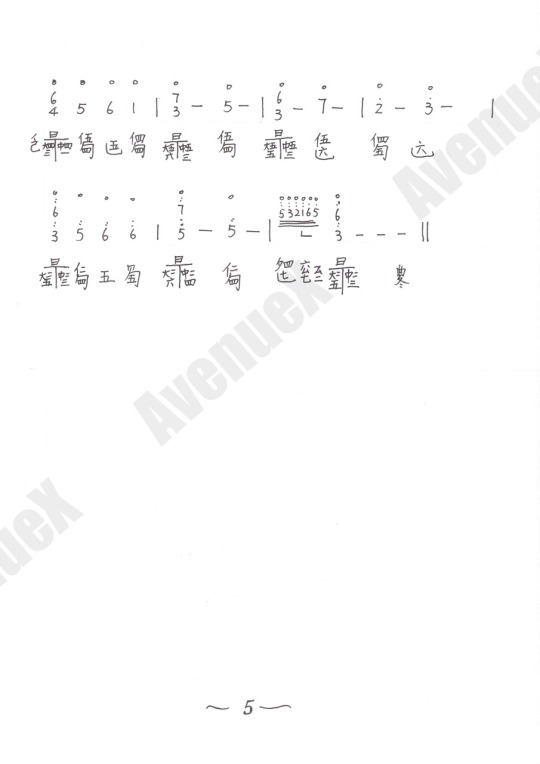
My version of Wu Ji from The Untamed on Gu Qin.
陈情令无羁古琴谱
94 notes
·
View notes
Photo

Merci Twitter :,)
Précédent - Suivant
Sommaire
#魔道祖师#mdzs#mo dao zu shi#mdzs manhua#mo dao zu shi manhua#mxtx#mo xiang tong xiu#墨香铜臭#grandmaster of demonic cultivation#the untamed#wangxian#忘羡#xianyun#羡云#wuji#无羁#chen qing ling#陈情令#wei wuxian#wwx#wei ying#coincidence#mdzs meme
12 notes
·
View notes
Photo
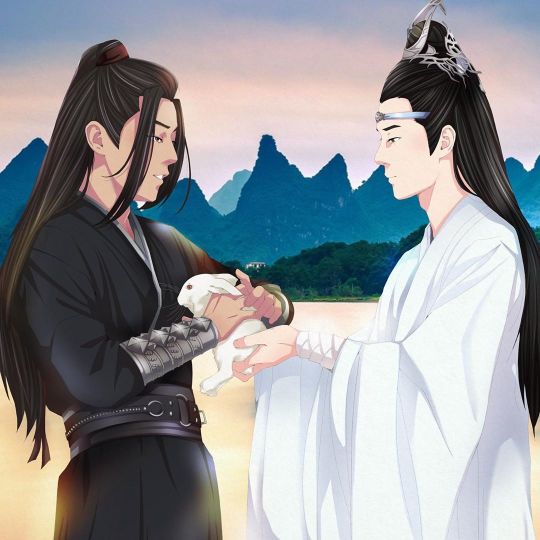
[FA] 陈情令 - WangXian ”你送我的兔子長大了.” I’ll never get over this drama and I’ll just keep talking about this until the day I die 🤣 #TheUntamed #Fanart #忘羡 #无羁 #陈情令 https://www.instagram.com/p/B4pyU20BXju/?igshid=fe3gezzcyi90
1 note
·
View note
Text
无羁 WUJI / UNRESTRAINED
INTRODUCTION:
无羁 Wuji (spotify here; YouTube here) is the first song on the CQL companion album and the theme/credits song of CQL. It is utilized diegetically in the same way the Wangxian song is in the original novel (it is also used extradiegetically, copiously). The song is performed as a duet between Xiao Zhan and Wang Yibo, and can be construed as a conversation or dual-monologue between Wei Wuxian and Lan Wangji.
Of the three official versions of the Wangxian song (MDZS audiodrama: 忘羡 Wangxian, CQL live-action: 无羁 Wuji, and MDZS donghua: 羡云 Xianyun), 无羁 Wuji is the least overtly romantic, foregrounding instead the thematic elements of right and wrong, dream and reality, death and legacy, entering the world to contribute to society and departing the world to wander freely.
In addition to being a thematically appropriate title, 无羁 wuji is a stealth pun on the ship name 忘羡 wangxian (“forgetting envies”). An alternative ship name for Wei Wuxian and Lan Wangji could be 无机 wuji (“without device”). 无机 wuji is a close homophone to 无羁 wuji, which brings us full circle to the name of this song.
PRODUCTION STAFF:
Lyricists: 澄一 Cheng Yi, 冥凰 Ming Huang
Composer / Arranger: 林海 Lin Hai
Performed by: 肖战 Xiao Zhan and 王一博 Wang Yibo
LYRICS + TRANSLATION:
闻笛声独惆怅 / Listening to the sound of the flute, solitary, melancholy
云深[1]夜未央 / Deep in the clouds, the night has not yet aged
是与非 都过往 / Right and wrong—all past and gone
醒来了 / Waking—
怎能当梦一场 / how can all this be considered a dream?
红尘中[2]/ In this world of red dust
毁誉得失如何去量 / how can praise and blame, victory and loss be weighed?
萧萧血热刀锋凉 / Blood flows hot, the blade’s edge cold
山高水远[3]/ The mountains tower, the rivers wander
又闻琴响 / The sound of the zither, heard again
陈情[4]未绝 / This story has yet to end—
卧荻花[5]月如霜 / laying on reeds, the moon like frost
煮[6]一壶生死悲欢 / Warm a vintage of life and death, sorrows and joys
祭[7]少年郎 / to commemorate the young men who have passed
明月依旧 / The bright moon remains the same—
何来怅惘 / where did despair and distress come from?
不如潇潇洒洒[8] / It would be better to freely journey
历遍风和浪 / facing the wind and waves
天涯一曲共悠扬 / sharing the corners of the sky with the rise and fall of a song
穿万水 过千山 / Crossing ten thousand waters, passing a thousand mountains
路尽人茫茫 / At road’s end—a silhouette, hazy and indistinct
是与非 都过往 / Right and wrong—all past and gone
醒来了 / Waking—
就当它梦一场 / just consider all this as a dream
红尘中 / In this world of red dust
毁誉得失如何去量 / how can praise and blame, victory and loss be weighed?
萧萧血热刀锋凉 / Blood flows hot, the blade’s edge cold
山高水远 / The mountains tower, the rivers wander
又闻琴响 / The sound of the zither, heard again
陈情未绝 / This story has yet to end
笑世事多无常[9] / we laugh at the affairs of the world, so inconstant
煮一壶生死悲欢 / Warm a vintage of life and death, sorrows and joys
祭少年郎 / to commemorate the young men who have passed
明月依旧 / The bright moon remains the same—
何来怅惘 / where did despair and distress come from?
不如坦坦荡荡 / It would be better to, with open heart and fair mind,
历遍风和浪 / face the wind and waves
天涯一曲共悠扬 / sharing the corners of the sky with the rise and fall of a song
ANNOTATIONS:
[1] The words here are 云深 yunshen, as in 云深不知处 yunshen buzhichu, which is the full name of Cloud Recesses. The name derives from the last line of a 贾岛 Jia Dao poem, 《寻隐者不遇》, and could be rendered in full translation as “deep in the clouds, where one knows not.” Though 云深 yunshen is certainly being used here as a shorthand for Cloud Recesses, I choose to translate 云深 yunshen a bit literally.
[2] 红尘 hongchen, literally “red dust,” is a metaphor for the mortal world/human society.
[3] 山高水远 shangao shuiyuan is a chengyu that derives from 刘禹锡 Liu Yuxi’s essay 《望赋》, and is used to describe long journeys. Literally rendered, it becomes “the mountains are high, the waters (rivers) distant.” If I were to over-read this chengyu, I would point to a resonance with the chengyu 高山流水 gaoshan liushui, literally “high mountains, flowing waters,” which is often used as a shorthand for the 知音 zhiyin relationship.
[4] Title drop! The line 陈情未绝 chenqing weijue means “chenqing has not ended/is not yet over.” For an in-depth dive on the binome 陈情 chenqing and it’s possible meanings, I would direct you this post. An alternate translation for this line could be “these old feelings have not yet ended.”
[5] 荻花 dihua are reed flowers, also called silk flowers. They’re associated with autumn, rivers, and a kind of pastoral simplicity (a la “cutting a bed of reed flowers and sleeping beneath the stars”). It is perhaps most well-known in 白居易 Bai Juyi’s poem 《琵琶行》Pipa Xing, in which the first couplet runs: 浔阳江头夜送客,枫叶荻花秋瑟瑟 / at the head of Xunyang River, I see off guests at night / maple leaves, reed flowers—autumn whispers and rustles. Wei Wuxian also quotes the end of this poem in episode 5 of CQL.
[6] It was—and is—common practice to heat certain wines/alcohol prior to consumption.
[7] The verb 祭 ji, translated here as “commemorate,” just hits different in Mandarin. It’s specifically the verb used in 祭奠 jidian, “to hold a memorial ceremony for,” and has valences not just of commemoration, but also sacrifice and ritual. Think about the connotations of “raise a glass” from Hamilton and you’re maybe halfway there.
[8] 潇洒 xiaosa doesn’t have a good equivalent in English. Usually, you’ll see it translated along the lines of “easygoing and unrestrained,” or “free and unaffected”—it’s extraordinarily charismatic, somewhat careless (or rather, carefree), and, dare I say, quite dashing.
[9] The phrase 世事多无常 shishi duo wuchang is likely a reference to episode 35, during which Lan Wangji remarks 世事无常 shishi wuchang, literally “the affairs of the world have no constancy,” sometimes rendered “life is unpredictable,” shortly before throwing back a shot of Wei Wuxian’s wine.
ONCE MORE WITH CLARITY VERSION:
Listening to the sound of the flute, solitary, melancholy
Deep in the clouds, the night has not yet aged
Right and wrong—all past and gone
Waking—
how can this all be considered a dream?
In this world of red dust
how can praise and blame, victory and loss be weighed?
Blood flows hot, the blade’s edge cold
The mountains tower, the rivers wander
The sound of the zither, heard again
This story has yet to end
laying on reeds, the moon like frost
Warm a vintage of life and death, sorrows and joys
to commemorate the young men who have passed
The bright moon remains the same—
where did despair and distress come from?
It would be better to freely journey, facing the wind and waves
sharing the corners of the sky with the rise and fall of a song
Crossing ten thousand waters, passing a thousand mountains
At road’s end—a silhouette, hazy and indistinct
Right and wrong—all past and gone
Waking—
just consider this all as a dream
In this world of red dust
how can praise and blame, victory and loss be weighed?
Blood flows hot, the blade’s edge cold
The mountains tower, the rivers wander
The sound of the zither, heard again
This story has yet to end
we laugh at the affairs of the world, so inconstant
Warm a vintage of life and death, sorrows and joys
to commemorate the young men who have passed
The bright moon remains the same—
where did despair and distress come from?
It would be better to, with open heart and fair mind,
face the wind and waves
sharing the corners of the sky with the rise and fall of a song
#PL translations#wuji.mp3#I... was not thinking about tumblr formatting when I wrote these translations on microsoft word
632 notes
·
View notes
Text


I can't explain how this show makes me happy and sad at the same time...
It's like a memory of a past life, in which I was so happy that try to remember it now makes me sad about my actual life...
#the untamed#mo dao zu shi#lan zhan#wei wuxain#wang yibo#xiao zhan#china#martialarts#love#cdrama#SoundCloud
17 notes
·
View notes
Text
MDZS Songs
Music is a huge part of MDZS. Its protagonists Lan Wangji and Wei Wuxian’s cultivations are both done through music; it's a song that brings them back together when Wei Wuxian returns. With that, here are some of our favorite songs from the different adaptations and songs made by fans. 💕
Official:
忘羡 (WangXian) — Theme song of audio drama's season 2, WangXian's duet by Wu En and Yu Xia.
On the official site: https://www.missevan.com/sound/1143160
English subs: https://www.youtube.com/watch?v=-teoD5uM_8U
Alternative translation: https://fluff-crt.tumblr.com/post/181868920627/the-explanation-of-the-lyric-of-full-wangxianmp3
人间纵我 (ren jian zong wo) — Theme song of audio drama's season 3, WangXian's duet by Wu En and Yu Xia.
On the official site: https://m.missevan.com/sound/1277015
English subs: https://m.youtube.com/watch?v=8ZQ9u1mQ8NE
Alternative translation: https://fluff-crt.tumblr.com/post/186231466127/the-explanation-of-the-lyric-of-%E4%BA%BA%E9%97%B4%E7%BA%B5%E6%88%91-untamed-as-i
何以歌 (he yi ge) — Theme song of audio drama's season 1, Wei WuXian's POV by Aki.
On the official site: https://www.missevan.com/sound/1004405
English subs: https://m.youtube.com/watch?v=e_KbG_U-hwo
MXTX's cover: https://m.bilibili.com/video/av25707868.html
无羁 (wu ji) — The Untamed's theme song, WangXian's duet by Xiao Zhan and Wang Yibo.
Official YouTube channel with English subs: https://m.youtube.com/watch?v=oAKSQTDDv0A
Alternative translation: https://fluff-crt.tumblr.com/post/186118733582/%E6%97%A0%E7%BE%81-the-untamed-translator-%E5%BD%92-proofreader
不羡 (bu xian) — Ending song of donghua's season 1, Wei WuXian's POV by SING女团.
With English subs: https://m.youtube.com/watch?v=epwRc3zmqdA
醉梦前尘 (zui meng qian chen) — Duet version of donghua's opening by Zhang Jie and Bian Jiang.
With English subs: https://m.youtube.com/watch?v=CggZ_j73A5k
Fanmade:
湛 (zhan; Lan Wangji's name) — Lan Wangji's character song, by 云三少JUN.
Original source: https://m.bilibili.com/video/av42632303.html
Translation: https://m.youtube.com/watch?v=3YrqcNEg7G4&persist_app=1&app=m
月满襟 (yue man jin) — Lan Wangji's character song, by Wu En.
Original source: https://m.bilibili.com/video/av44473100.html
English subs: https://m.youtube.com/watch?v=Nj__nYGeUDk
陈情 (chen qing) — WangXian centric by 伶婼画.
Original source: https://m.bilibili.com/video/av8082802.html
English subs: https://m.youtube.com/watch?v=WesrmDAe_mg
忘尘如羡 (wang chen ru xian) — WangXian's duet by 老虎歐巴 and Assen捷.
On YouTube (English translation in the comments): https://m.youtube.com/watch?v=H5K33hSjFYo
春风不羡 (chu feng bu xian) — WangXian's duet by 锦鲤 and 玄子.
Original source: https://m.bilibili.com/video/av5604533.html
English subs: https://m.youtube.com/watch?v=Z36L62HeA44
#mdzs#mo dao zu shi#grandmaster of demonic cultivation#the untamed#chenqingling#cql#gdc#lan wangji#lan zhan#lwj#wei ying#wei wuxian#wwx#魔道祖师
603 notes
·
View notes
Text
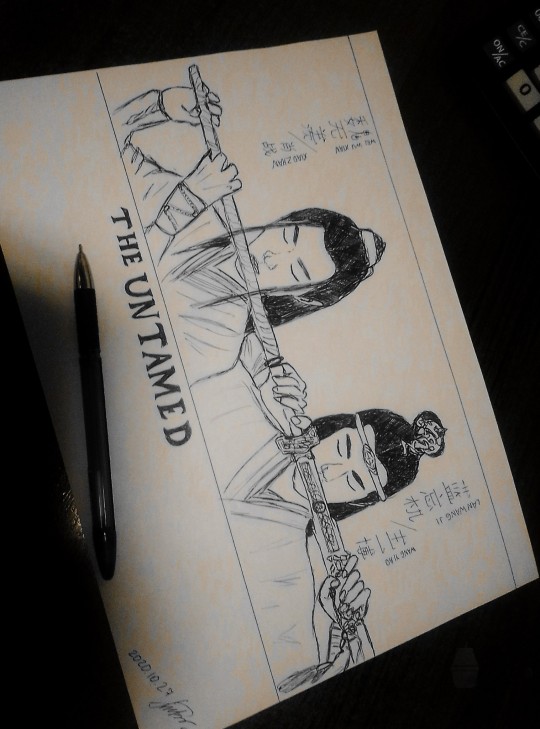
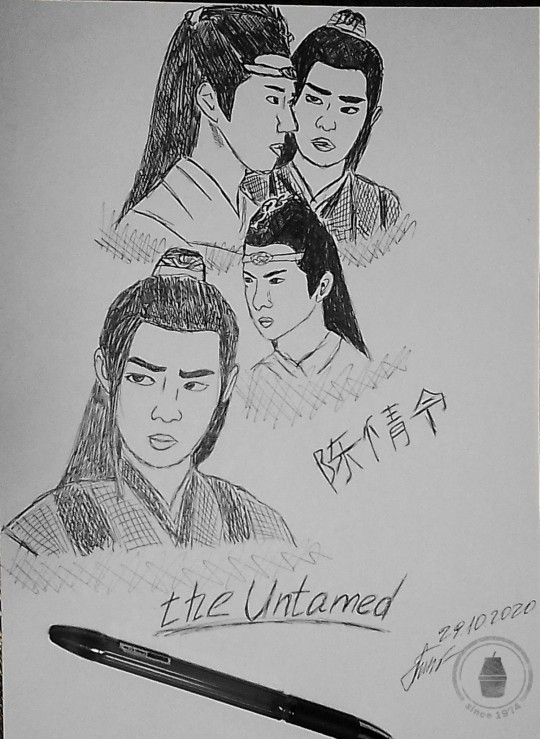
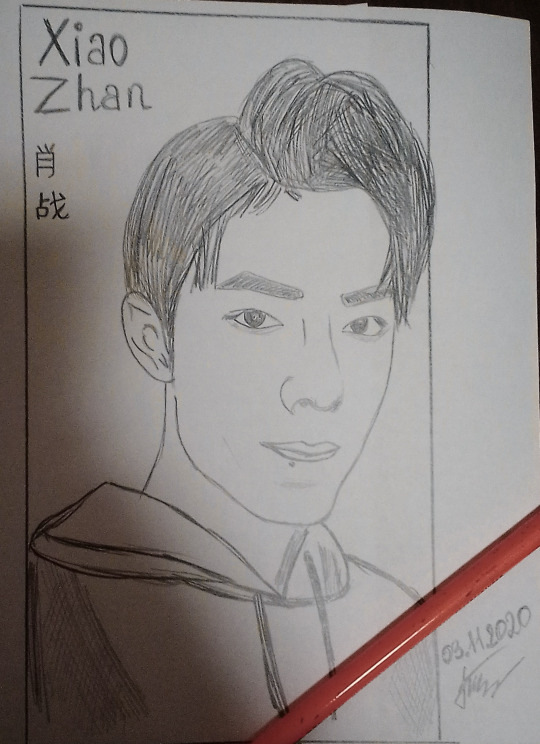

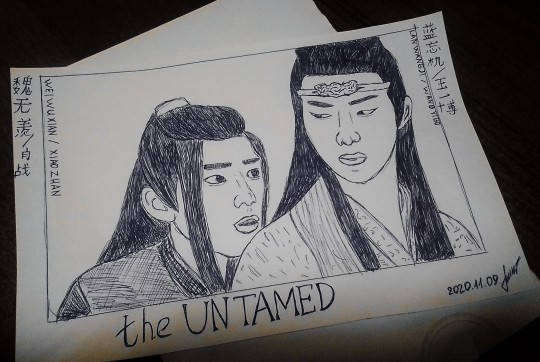

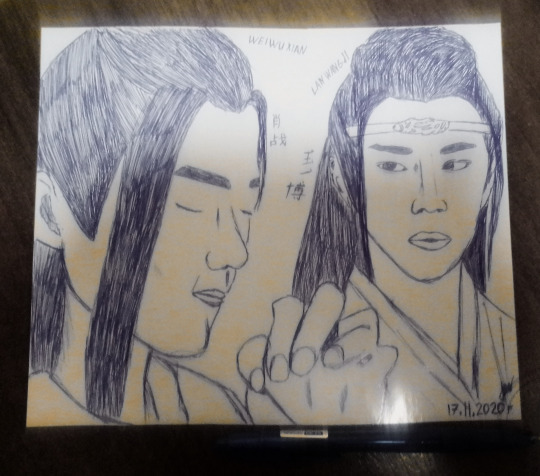
this is my favourite ❤️💓😍
#the untamed#chinese novel#black and white#wang yibo#xiao zhan#王一博肖战#王一博#肖战#art#artistsupport#favourite#boy#chinese#boys icons#SoundCloud
4 notes
·
View notes
Audio
wangxian.mp3 😌
Erhu cover by @ 柠露读乐Lemondew
#vocaloid#the untamed#cql#yuezheng longya#kamui gakupo#longya#gakupo#it's my first time using a chinese vocaloid!!
17 notes
·
View notes